Lunch Of Suffering. (X)




Lunch of Suffering. (X)
More Posts from Blackswan8043 and Others
💀💀

sad that I’m not living in an enchanted forest
GOSHH.THE OUTFITSS!!!!






Jessica Chastain in CRIMSON PEAK (2015) dir. Guillermo del Toro
Coming into a fandom late

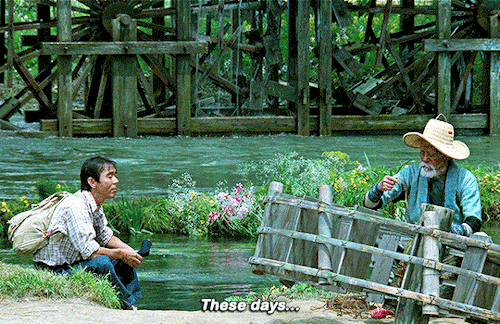






’夢‘ DREAMS 1990, dir. Akira Kurosawa
THISS
Let's Talk: TFOTA vs ACOTAR
Why compare them, you may ask? Well, mostly because I love analysing works of fiction, especially fantasy. But also because I love expressing my adoration for The Folk of the Air trilogy; and I wanna call out SJM on her writing, and I thought comparing these two series might be a great way to do so!
Let’s look at the similarities first, shall we? They are both about human girls being forcefully taken away from their worlds into faerie worlds. They are both marketed as YA Fantasy (yes, I know ACOSF is NA, but I will only be talking about the original trilogy). I’m gonna be completely honest here- I love the writing style of both the authors. SJM has flaws in her grammar, yes, but I would be lying if I said I did not like the way she expressed her writings through the figures of speech.
Plot:
Look, I know that TFOTA is more plot-oriented, whereas ACOTAR is character-oriented. But as far as fantasy is concerned, plot is a very crucial element. Holly Black manages to give proper arcs to her main characters without spoiling or disrupting the plots/plot-holes. SJM, on the other hand, has a very messy plot to begin with. It begins as a retelling of Beauty and the Beast, and then takes a turn to heaven knows where. And her characters aren’t well developed either. Why were Nesta and Elain so bitchy? What is Mor’s power? How did Feyre get those powers, and why didn’t Rhys get them, too, when he was resurrected? SO many unanswered questions.
Characters:
TFOTA does not have many moments where we get to see the characters have bonding moments with each other, and yet, we root for them. This is not to say that we don’t root for the ACOTAR characters at any given point. But some of the moments really do seem too unnecessary (*cough* Mor coming out for six pages *cough*). The backstories of each of the IC members were told, whereas Holly Black mostly showed the backstories of her important characters (in flashback).
Both Feyre and Jude have two sisters. We see Taryn go from the sweet twin, to a complete bitch. Our feelings for her develop throughout the first book (and continue in the rest). Vivi is the type of character who isn’t exactly portrayed to be likeable or unlikeable. She is a morally good character, but she messes up, then she feels guilty and tries to rectify her mistakes - it’s the choice of the reader whether they like her or not. When it comes to Elain and Nesta, however, we are told that we are supposed to hate them within the first few chapters. It isn’t shown how exactly they whine a lot, instead, we read about it in Feyre’s internal thoughts.
Love interests:
Wow I can’t believe I’m gonna compare Cardan Greenbriar with this Rhystrash, but here we are Both Cardan and Rhys were supposedly villains in the first book, and then became the love interest.
Now, the difference between them is that Cardan is held accountable for being shitty; his deeds are acknowledged; he feels terrible for doing them, and never justifies his actions. Unlike Rhys, who never apologises, never even admits to have done something wrong, and claims that he did all that to 'protect' Feyre. And SJM pulls the "I was good all along, even when I did bad stuff" trope, which doesn't make any sense. Especially because Rhys himself admits to have not done anything wrong. I'm just gonna add a little bit of Aaron Warner here, and say that even if he had good intentions all along, Warner never hesitated on admitting that what he did was wrong.
Also, one more thing that I noticed was that the things Balekin did to Jude when she was being held in the underwater kingdom (I forgot the name), is kind of similar to the things Rhys did to Feyre UTM. And while Jude kills Balekin, Feyre...well....you know.
Protagonists:
Buckle up bitches, 'cause this is gonna be a long ass rant. Jude vs Feyre - I have seen other comparisons between them, and I wholeheartedly agree.
To begin with: motive. In the first few chapters of TCP, we see Jude struggle in the face world. She gets bullied, insulted, and there is a whole chapter dedicated to some of her bad memories in Elfhame while growing up. Feyre, on the other hand, didn't have anything against fae when she kills one "in cold blood" (or wtv the phrase was idk). She also doesn't have a motive in wanting to be High Lady, considering she'd been treated pretty well in both the courts (not UTM).
Also, SJM chose the lamest protagonist she could choose. Feyre is mostly put into situations by other people, and she also gets out purely by luck-- or Rhysand does something. Whereas Jude makes her own decisions, chooses what she's gonna do, and creates her own schemes. Which one is an example of a good protagonist?
Honestly, I feel like Nesta would've been a better protagonist, considering she's way more like Aelin as a character (who was a very good protagonist, and I know this even though I haven't read ToG).
Feyre uses the same old "seduction" technique, which is probably the worst thing a main character should do. And since ACOMAF, she was lowered into being a narrative for Rhys. It is evident that SJM tried making Feyre a "girlboss" in which she failed miserably.
Conclusion:
People who hate on TFOTA saying there was not enough romance, and idolise ACOTAR never fail to confuse me. Like, it's literally fantasy. If you don't have strong characters (in terms of writing) and good worldbuilding, then there is literally no point of a good romance. And in my opinion, the romance in TFOTA was just fine.
TFOTA is everything ACOTAR couldn't be, and I stand by that.
I wanna move here lol


The Gardener's Cottage. x
I love hair pins✨️








Enchanted Creations By Angel.
My favvv scene❤🔥

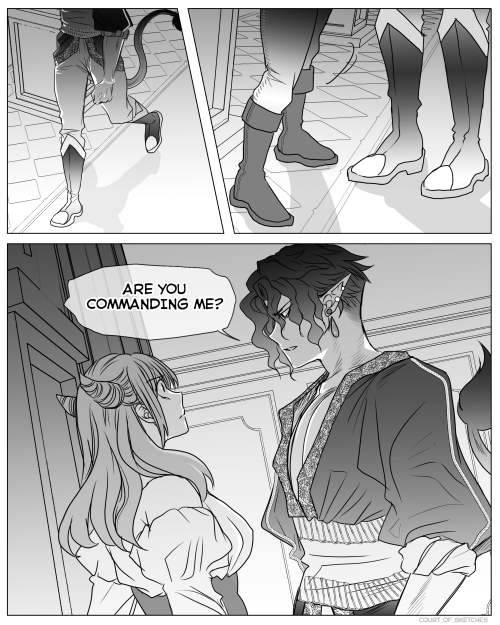


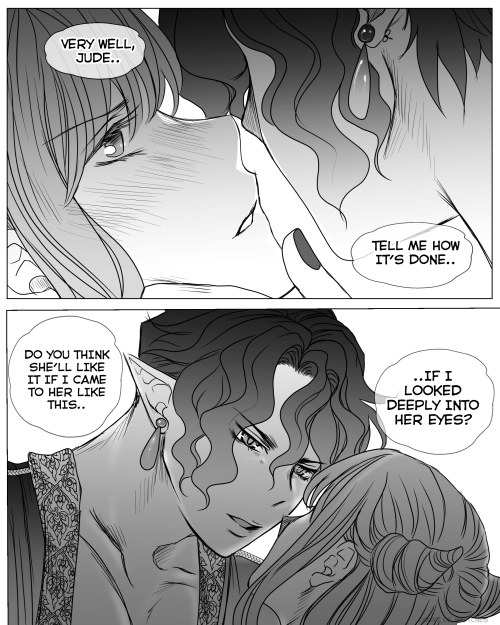


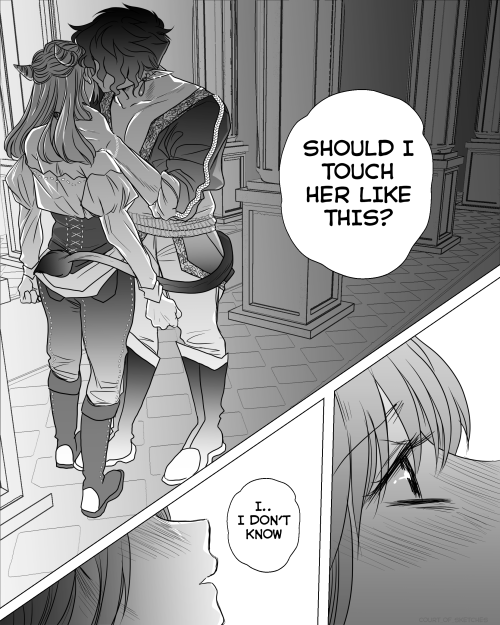


Manga redraw of chapter 15 from The Wicked King 🥀 I love them so much, I can’t get enough 🥲

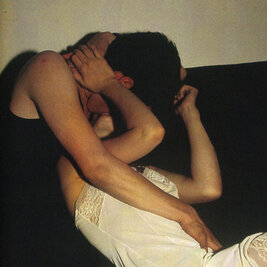
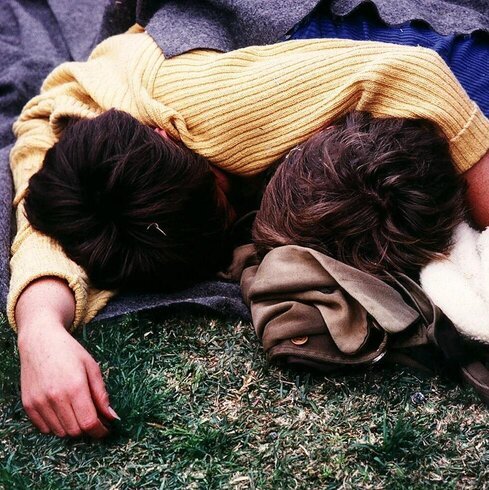







faceless embraces
1. alex & lutz back, 1992, ph. wolfgang tillmans 2. ph. nan goldin 3. love-In, los angeles, 1967 ph. jerry de wilde 4. joseph lorusso, “cafe lovers 4” (detail) 5. el lenguaje del limbo II by mariana restrepo 6. photographer unknown 7. lovers in a field, 2019 ph. clifford prince king 8. isle of wight festival, 1969 ph. david hurn 9. joseph lorusso, “lovers in the garden” 10. the big gamble (1961), dir. elmo williams & richard fleischer
-
 snicklesnek reblogged this · 2 months ago
snicklesnek reblogged this · 2 months ago -
 snicklesnek liked this · 2 months ago
snicklesnek liked this · 2 months ago -
 t00obsessed reblogged this · 2 months ago
t00obsessed reblogged this · 2 months ago -
 t00obsessed liked this · 2 months ago
t00obsessed liked this · 2 months ago -
 anna-pineappel liked this · 2 months ago
anna-pineappel liked this · 2 months ago -
 plate-armoredpangolin reblogged this · 2 months ago
plate-armoredpangolin reblogged this · 2 months ago -
 plate-armoredpangolin liked this · 2 months ago
plate-armoredpangolin liked this · 2 months ago -
 beautifuldreamlandgladiator reblogged this · 2 months ago
beautifuldreamlandgladiator reblogged this · 2 months ago -
 beautifuldreamlandgladiator liked this · 2 months ago
beautifuldreamlandgladiator liked this · 2 months ago -
 x-creature-feature-x liked this · 2 months ago
x-creature-feature-x liked this · 2 months ago -
 kermit-willsellyoueggs reblogged this · 2 months ago
kermit-willsellyoueggs reblogged this · 2 months ago -
 kermit-willsellyoueggs liked this · 2 months ago
kermit-willsellyoueggs liked this · 2 months ago -
 parttimepunner reblogged this · 2 months ago
parttimepunner reblogged this · 2 months ago -
 autismwonderland reblogged this · 2 months ago
autismwonderland reblogged this · 2 months ago -
 steinthequeen reblogged this · 2 months ago
steinthequeen reblogged this · 2 months ago -
 graphx liked this · 3 months ago
graphx liked this · 3 months ago -
 luesmainblog liked this · 4 months ago
luesmainblog liked this · 4 months ago -
 ioccasionallyburnthings reblogged this · 6 months ago
ioccasionallyburnthings reblogged this · 6 months ago -
 ioccasionallyburnthings liked this · 6 months ago
ioccasionallyburnthings liked this · 6 months ago -
 hubcaptastrophe reblogged this · 6 months ago
hubcaptastrophe reblogged this · 6 months ago -
 nox-lilium reblogged this · 9 months ago
nox-lilium reblogged this · 9 months ago -
 secretlydolphin liked this · 10 months ago
secretlydolphin liked this · 10 months ago -
 writers-roost reblogged this · 10 months ago
writers-roost reblogged this · 10 months ago -
 breach-of-artistry reblogged this · 10 months ago
breach-of-artistry reblogged this · 10 months ago -
 reblog-landfill reblogged this · 10 months ago
reblog-landfill reblogged this · 10 months ago -
 reblog-landfill reblogged this · 10 months ago
reblog-landfill reblogged this · 10 months ago -
 point-of-void reblogged this · 1 year ago
point-of-void reblogged this · 1 year ago -
 happilygloriouscreation liked this · 1 year ago
happilygloriouscreation liked this · 1 year ago -
 lady-vira reblogged this · 1 year ago
lady-vira reblogged this · 1 year ago -
 sztefa001 liked this · 1 year ago
sztefa001 liked this · 1 year ago -
 perytonpred reblogged this · 1 year ago
perytonpred reblogged this · 1 year ago -
 perytonpred liked this · 1 year ago
perytonpred liked this · 1 year ago -
 phantom-of-the-heavymetal-opera reblogged this · 1 year ago
phantom-of-the-heavymetal-opera reblogged this · 1 year ago -
 notcruvusmemes liked this · 1 year ago
notcruvusmemes liked this · 1 year ago -
 cdpdoodler liked this · 1 year ago
cdpdoodler liked this · 1 year ago -
 gayelectro reblogged this · 1 year ago
gayelectro reblogged this · 1 year ago -
 ashwuzh3re3 liked this · 1 year ago
ashwuzh3re3 liked this · 1 year ago -
 enemistar reblogged this · 1 year ago
enemistar reblogged this · 1 year ago -
 freezing-kaiju liked this · 1 year ago
freezing-kaiju liked this · 1 year ago -
 bluefirephoenix liked this · 1 year ago
bluefirephoenix liked this · 1 year ago
